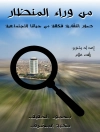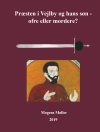What can we learn from successes and failures in the pursuit of racial justice in the UK and elsewhere in the Global North?
A dominant view of racial justice has long been linked to a ‘cruel optimism’ which normalises social and political outcomes that sustain racial injustice, despite successive governments wielding the means to address it. Researchers, activists and minoritised groups continually identify the drivers of these outcomes, but have grown accustomed to persevering despite strong resistance to change.
Looking at numerous examples across anti-racist movements and key developments in nationhood/nationalism, institutional racism, migration, white supremacy and the disparities of COVID-19, Nasar Meer argues for the need to move on from perpetual crisis in racial justice to a turning point that might herald a change to deep-seated systems of racism.
Table of Content
1. The Cruel Optimism of Racial Justice
2. Reimagining Nationhood?
3. Equality, Inequalities and Institutional Racism
4. The Racial Realities of COVID-19
5. (De-)racialising Refuge
6. Whiteness and the Wreckage of Racialisation
7. Rethinking the Future: Affect, Orders and Systems
About the author
Nasar Meer is Professor of Race, Identity and Citizenship in the School of Social and Political Sciences at the University of Edinburgh. His publications include: Islam and Modernity (ed, 2017); Interculturalism and multiculturalism: Debating the dividing lines (co-ed, 2016); Citizenship, Identity and the Politics of Multiculturalism (2015, 2nd Edition); Racialization and religion (ed, 2014), Race and Ethnicity (2014) and European Multiculturalism(s) (co-edited, 2012). In 2016 he was awarded the Royal Society of Edinburgh (RSE) Thomas Reid Medal for excellence in the social sciences, and in 2017 he was elected as a Fellow of the Academy of Social Sciences. He holds a Personal Research Fellowship with the Royal Society of Edinburgh (RSE) to study race equality in Scotland, and is Principal Investigator of The Governance and Local Integration Migrants and Europe’s Refugees (GLIMER) (ESRC and Horizon2020: 2017-2020).












